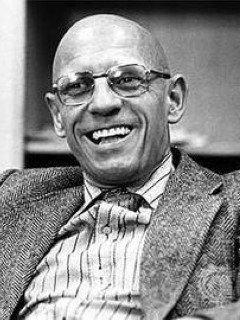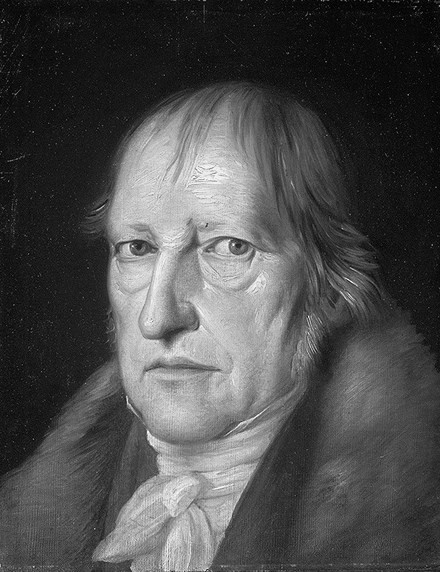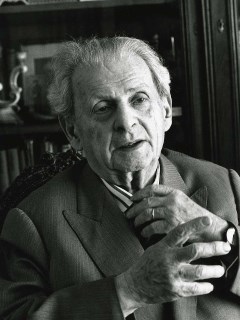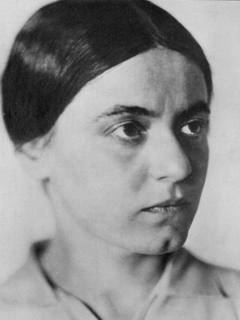Anthony Steinbock
Anthony Steinbock is Professor of Philosophy at Southern Illinois University Carbondale and Director of the Phenomenology Research Center. His book publications include Moral Emotions: Reclaiming the Evidence of the Heart (Northwestern University Press, 2014 - Recipient of the 2015 Symposium Book Award), Phenomenology and Mysticism: The Verticality of Religious Experience (Indiana, 2007/Ballard Prize in Phenomenology 2009) and Home and Beyond: Generative Phenomenology after Husserl (Northwestern, 1995). He is the translator of Edmund Husserl,Analyses Concerning Passive and Active Synthesis: Lectures on Transcendental Logic (Kluwer, 2001), and Editor-in-Chief of Continental Philosophy Review, and General Editor of the Northwestern University Press “SPEP” Series. He recently served as the Executive Co-Director of the Society for Phenomenology and Existential Philosophy (SPEP).
(ed) (2023). Phenomenology and perspectives on the heart. Berlin: Springer.
(ed) (2022). Phenomenology and perspectives of the heart. Dordrecht: Springer.
(2021). Knowing by heart: loving as participation and critique. Evanston, IL: Northwestern University Press.
(2019). Hating as contrary to loving. The New Yearbook for Phenomenology and Phenomenological Philosophy, 17, 113-133.
(2019). The society of phenomenology and existential philosophy. In M. B. Ferri & C. Ierna (eds.) The reception of Husserlian phenomenology in North America (pp. 267-281). Dordrecht: Springer.
(2018). It's not about the gift: from givenness to loving. London: Rowman & Littlefield.
(2018). Surprise as emotion: between startle and humility. In N. Depraz & A. Steinbock (eds.) Surprise (pp. 3-21). Dordrecht: Springer.
(2018). The role of the moral emotions in our social and political practices. In M. Staudigl & J. Alvis (eds.) Phenomenology and the post-secular turn. London: Routledge.
with Depraz Natalie (eds) (2018). Surprise: an emotion?. Dordrecht: Springer.
(2017). La sorpresa como emoción: entre el sobresalto y la humildad. Acta Mexicana de Fenomenología, 2, 13-30.
(2017). Limit-phenomena and phenomenology in Husserl. London: Rowman & Littlefield.
with Apostolescu Iulian (eds) (2017). Phenomenological Reviews 3.
with Apostolescu Iulian (eds) (2016). Phenomenological Reviews 2.
(2015). Heidegger, machination, and the Jewish question: the problem of the gift. Gatherings: The Heidegger Circle Annual, 5, 50-76. https://doi.org/10.5840/gatherings201553.
with Apostolescu Iulian (eds) (2015). Phenomenological Reviews 1.
(2014). Moral emotions: Reclaiming the evidence of the heart. Evanston, Ill.: Northwestern University Press.
(2013). The distinctive structure of the emotions. In L. Embree & T. Nenon (eds.) Husserl's Ideen (pp. 91-104). Dordrecht: Springer.
(2012). Evidence in the phenomenology of religious experience. In D. Zahavi (ed.) The Oxford handbook of contemporary phenomenology (pp. 583-606). Oxford: Oxford University Press.
(2012). La perception érotique, la honte et l'histoire. Alter: Revue de phénoménologie, 20, 175-194.
(2011). Incarnate experience. In R. Kearney & K. Semonovitch (eds.) Phenomenologies of the stranger (pp. 109-125). New York: Fordham University Press.
(2010). Exemplarité, émotions et attention. Alter: Revue de phénoménologie, 18, 59-75.
(2009). Reducing the one to the other: Kant, Levinas, and the problem of religious experience. Levinas Studies, 4, 127-156. https://doi.org/10.5840/levinas200949.
(2007). The poor phenomenon: Marion and the problem of givenness. Alter: Revue de phénoménologie, 15, 357-372.
(2005). Book review [Review of the book , by ]. Continental Philosophy Review 38 (3-4), 289-294.
(2005). Immortalité, mortalité et natalité dans une perspective phénoménologique. Alter: Revue de phénoménologie, 13, 317-333.
(2004). Affection and attention: on the phenomenology of becoming aware. Continental Philosophy Review, 37 (1), 21-43. https://doi.org/10.1023/B:MAWO.0000049298.44397.be.
(2004). Generativity and generative phenomenology. In D. Moran & L. Embree (eds.) Phenomenology: Critical concepts in philosophy I (pp. 279-303). London: Routledge.
(2004). Hoping against hope. In D. Martino (ed.) The phenomenology of hope (pp. 65-78). Pittsburgh: Simon Silverman Phenomenology Center.
(2004). Introduction to this special issue. Continental Philosophy Review, 37 (1), 1-3. https://doi.org/10.1023/B:MAWO.0000049329.06370.ad.
(2004). Personal givenness and cultural a prioris. In D. Carr & C. Cheung (eds.) Space, time, and culture (pp. 159-176). Dordrecht: Springer.
(ed) (2004). Continental Philosophy Review 37 (1).
(2003). Individuation, particularization, and the scope of eidetic insight. Fussāru kenkyu, 3, 193-210.
(2003). Kotai-ka no jikan-sei to, keisō-teki dōsatsu no shatei. Fussāru kenkyu, 3, 211-234.
(1999). Alter: revue de phénoménologie (éditions alter). Husserl Studies, 16 (1), 65-75. https://doi.org/10.1023/A:1006270724205.
(1999). The problem of forgetfulness in Michel Henry. Continental Philosophy Review, 32 (3), 271-302. https://doi.org/10.1023/A:1006930715842.
(1998). Husserl's static and genetic phenomenology: translator's introduction to two essays. essay 1. Continental Philosophy Review, 31 (2), 127-152. https://doi.org/10.1023/A:1010089123758.
(1998). Introduction: phenomenology in Japan. In A. Steinbock (ed.) Phenomenology in Japan (pp. 1-14). Dordrecht: Springer.
(1998). Limit-phenomena and the liminality of experience. Alter: Revue de phénoménologie, 6, 275-296.
(1998). Phenomenology in Japan. Continental Philosophy Review, 31 (3), 225-238. https://doi.org/10.1023/A:1010059203604.
(1998). Spirit and generativity: The role and contribution of the phenomenologist in Hegel and Husserl. In N. Depraz & D. Zahavi (eds.) Alterity and facticity (pp. 163-203). Dordrecht: Kluwer.
(1998). Temporality and the point: the origins and crisis of continental philosophy. In D. Zahavi (ed.) Self-awareness, temporality, and alterity (pp. 151-167). Dordrecht: Kluwer.
(ed) (1998). Phenomenology in Japan. Dordrecht: Springer.
(1997). Back to the things themselves. Human Studies, 20 (2), 127-135. https://doi.org/10.1023/A:1005350727295.
(1997). Generative phenomenology. In L. Embree (ed.) Encyclopedia of phenomenology (pp. 261-266). Dordrecht-Boston-London: Kluwer.
(1997). The origins and crisis of continental philosophy. Man and World, 30 (2), 199-215. https://doi.org/10.1023/A:1004264831592.
(1996). Homeworld/Alien world: Toward a generative phenomenology of intersubjectivity. In L. Langsdorf, S. H. Watson & M. Bower (eds.) Phenomenology, interpretation and community (pp. 65-81). Albany: SUNY Press.
(1995). Generativity and generative phenomenology. Husserl Studies, 12 (1), 55-79. https://doi.org/10.1007/BF01324160.
(1995). Home and beyond: Generative phenomenology after Husserl. Evanston, Ill.: Northwestern University Press.
(1995). Phenomenological concepts of normality and abnormality. Man and World, 28 (3), 241-260. https://doi.org/10.1007/BF01277071.
(1994). Homelessness and the homeless movement: a clue to the problem of intersubjectivity. Human Studies, 17 (2), 203-223. https://doi.org/10.1007/BF01323602.
(1994). The project of ethical renewal and critique: Edmund Husserl's early phenomenology of culture. Southern Journal of Philosophy, 32, 449-464.
(1993-1994). The new "crisis" contribution: a supplementary edition of Edmund Husserl's Crisis texts. Review of Metaphysics, 47, 557-584.










